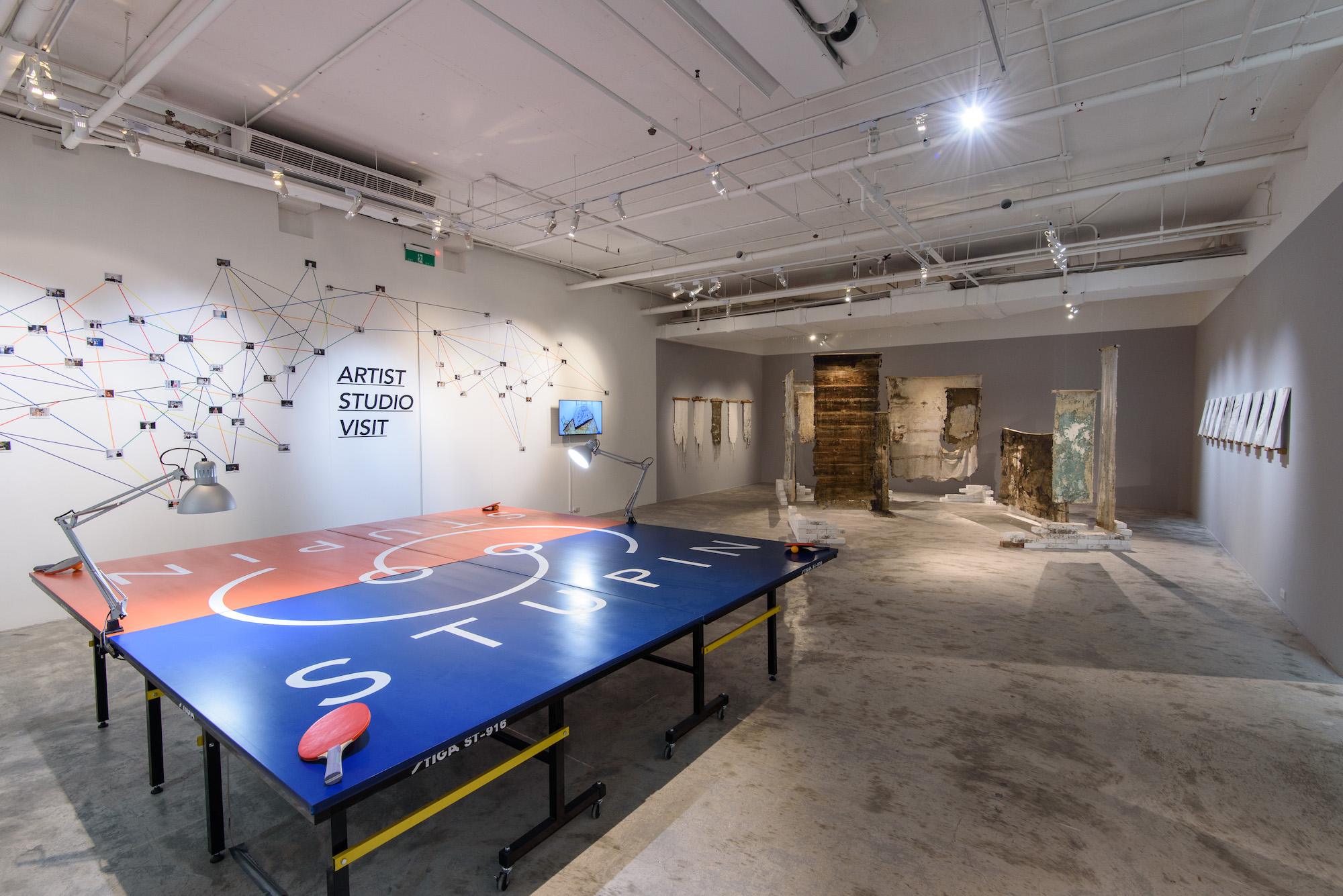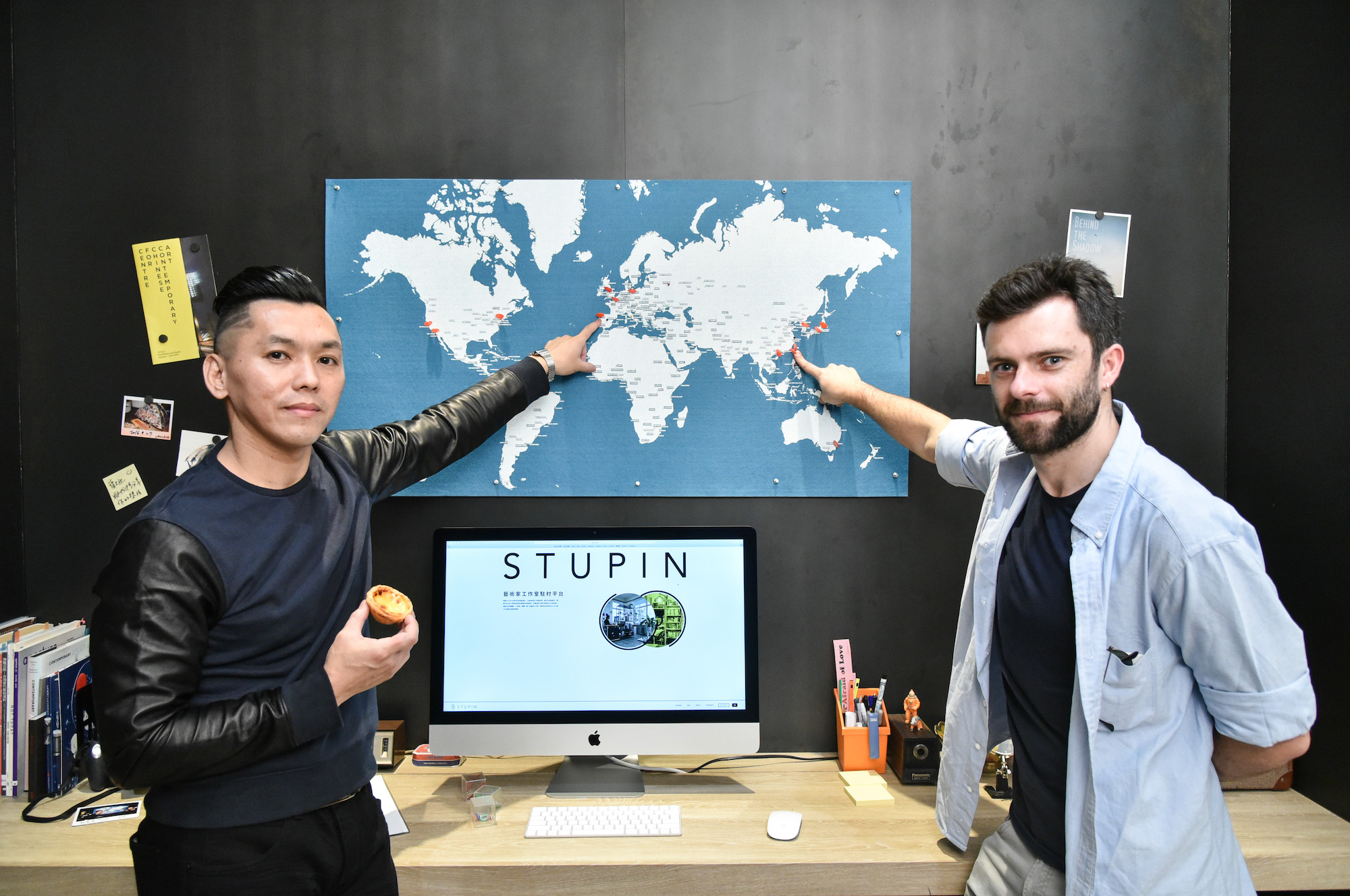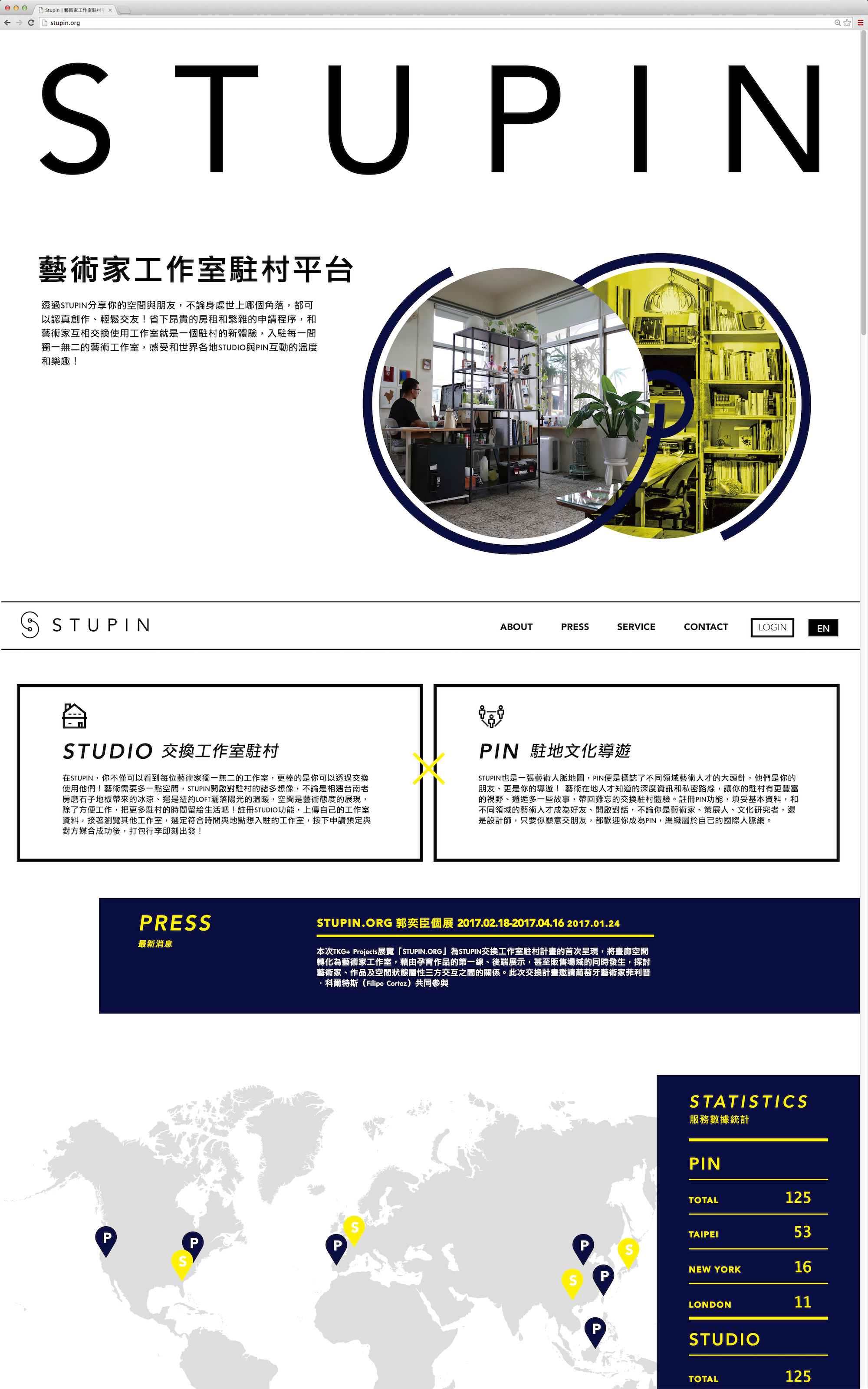Artist KUO I-Chen founded STUPIN in 2017. It is an artist studio residency platform. The idea KUO established STUPIN was when he went abroad, and he had to continue paying the rent of his studios even he was out of town. It became a financial pressure to him. Besides, he could hardly make effective connections within a limited time when he resided in another country. Therefore, he founded STUPIN. Through two main functions—studio swapping and PIN (local cultural tour guide), he expects to build a global studio residency network.
Artists can register in STUPIN to become a member and match where to reside. They only need to afford a plane ticket, and they can swap studios and easily experience different types of life adventures.
Another essential feature of STUPIN is "PIN- a local guide for cultural attractions/ organizations." Artists are always in a passive position when staying in an art residency. They are arranged to host open studios or wait for the organization to invite the curators to come. Moreover, in the institution, artists often meet artists who are also from abroad. They have little chance to mingle with locals. On STUPIN, artists can find local members in certain professions as cultural guides. With their support of knowledge and expertise, artists will be quickly merged in the local art networks.
There is no limit to the type of art on STUPIN, from visual arts, performing arts, literature, illustration design, theater, or movie. All creative people are welcomed to swap studios or accommodations. They are even encouraged to meet each other by only exchanging ideas and thoughts.
So far, on STUPIN, 46 studios are spreading in over 20 cities in the world including Taipei (Taiwan), Barcelona (Spain), Seoul (South Korea,) Warsaw (Poland,) London (UK), and Bucharest (Romania), etc. There are 273 PINs, 30 times studio swap, and over 150 cultural connections to assist over 100 artists.
In the future, STUPIN aspires to expand international connections. It is the most critical asset for a residency artist to have cultural exchanges with different backgrounds of people. Traditionally, the residency institution is the only window to other local people and organizations, and the artist is a single point that can hardly connect to a broad social network. However, STUPIN has broken the limitation by enabling spaces" and "links" to more mobile resources. STUPIN makes vacant spaces to be used and reduces unnecessary costs for artists. It has become a dense international social, artistic network.


